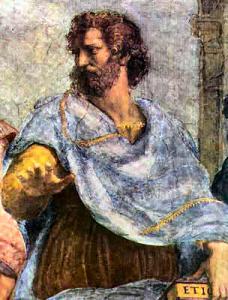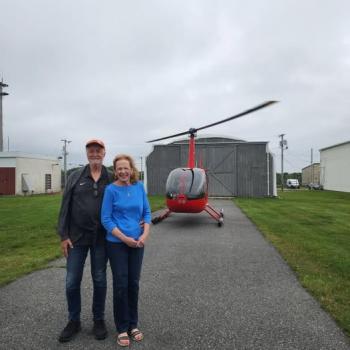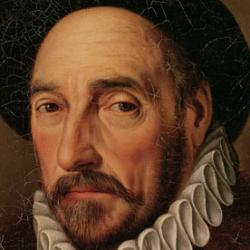Several years ago during my four-year stint as chair of the Providence College philosophy department, I found myself sitting at a table with several very concerned parents. It was during one of the summer orientation sessions for incoming freshmen, and these were the parents of students who had indicated interest in majoring in philosophy once their college career began in the fall. The question, expressed in various ways, that all of these parents wanted an answer to was “What the hell will my son/daughter be able to do with a major in philosophy?” This is a discipline-specific version of a broader, equally challenging question: What can one do with a liberal arts education? The answer I gave those worried parents some years ago also serves as the best answer to the second, broader question. My answer is “you are asking the wrong question.”
In a world focused on the bottom line, a world in which we demand tangible and verifiable returns on our investments, wondering about what the real-world return will be on an investment involving the commitment of many thousands of dollars and hours makes sense. But in the world of education, particularly liberal arts education, something of far greater importance and magnitude than the bottom line is at stake.
Almost twenty-five hundred years ago, Aristotle provided the framework for the shift in focus I have in mind. In his moral philosophy, Aristotle argues that all persons ultimately want the same thing—to live a life of human flourishing (eudaimonia), a life in which ones best human potentials are actualized. The question is, what is the best way to think about living such a life? The best question to ask, Aristotle suggests, is not “What do I need to do?” if I want to live such a life? Rather, the correct question to ask is “What sort of person should I be?” The life of human flourishing depends far more on the sort of person one is than on what one is doing and is more a matter of continual character development than of supply and demand. Bringing Aristotle’s insight to the issue of liberal arts education, the best question to ask is not “What can I do with a liberal arts education?”, but rather “What sort of person will a liberal arts education help me become?”
My father, an itinerant Baptist minister, once told me about a plaque on the preacher’s side of the pulpit in one of the many churches in which he sermonized during my growing-up years. The pulpit plaque challenged the person giving the sermon directly by asking “What are you trying to do to these people?” This very question has been the dominant issue underlying the core curriculum reform discussion that has involved all constituencies at all levels of Providence College for the past many years. During the early years of debate, then many months of planning and strategizing after passage of the new curriculum, and finally the early months of actually implementing the new core, we kept asking ourselves: “What are we trying to do to these people, these students who have chosen, along with their families, to make a Providence College liberal arts education a central part of their plans for a flourishing future?”
During the years of curriculum reform debate, I recall being part of a meeting with the Provost of the College and the Dean of the School of Arts and Sciences in which we were discussing how to best speak effectively and clearly about the new curriculum both on and off campus. After a fruitful conversation we agreed to think about it further and share our ideas on email. A couple of days later, I received an email from the Provost with the following: “A Providence College education prepares a student to be someone, more than to do something. It prepares students to hear more when they listen, reach deeper when they think, and say more when they speak.” Aristotle himself could not have said it better. A liberal arts education helps a student first identify, then become skilled using, the tools of lifetime learning. These tools are indispensable in the life of human flourishing and are centrally essential to a life of character, meaning and purpose long after graduation. A liberal arts education is truly on-the-job training, not for a specific job or profession, but for a well-lived human life.
The opening lines of the “General Rationale” for the new Providence College Core Curriculum captures this energy and focus clearly:
Providence College remains committed to the importance of a liberal education as preparation for life. The subjects that students study as undergraduates and, as importantly, the skills and habits of mind they acquire in the process, shape the lives they will lead after they leave college.
The lifelong learning tools of deep reading, critical thinking, effective writing, and clear communication skills, just to name a few, are more directly transferable to “real life” after college than any collection of facts and data.
Perhaps the most important component of a liberal arts education depends strongly on the close connection between teacher and learner. The challenge is expressed well by the twentieth-century French philosopher, theologian, social activist, and mystic Simone Weil:
Contrary to the usual belief, [will power] has practically no place in study. The intelligence can only be led by desire. For there to be desire, there must be pleasure and joy in the work. The intelligence only grows and bears fruit in joy. The joy of learning is as indispensable in study as breathing is in running.
The desire to learn, to pursue the truth at all costs, cannot be taught. It can only be awakened by example, shown as a living reality. The greatest task of a teacher is to demonstrate, by her or his own example, the desirability and attraction, the unparalleled invigoration and joy, of being a lifetime learner and pursuer of truth. Our greatest desire is that our classrooms be dynamic laboratories for the cultivation of learning, the nurturing of growth, and the shaping of character in those students we are privileged to welcome for a short time, then send into the world as ambassadors of human flourishing.













